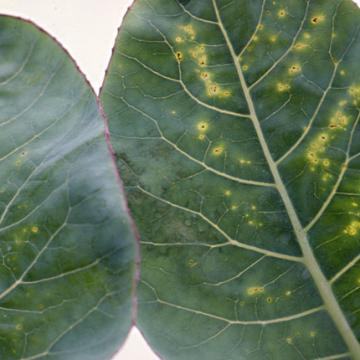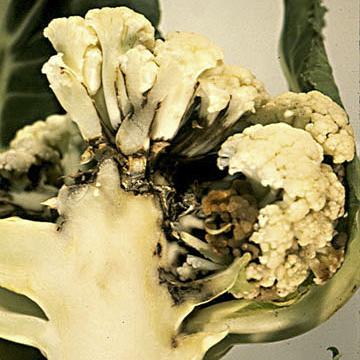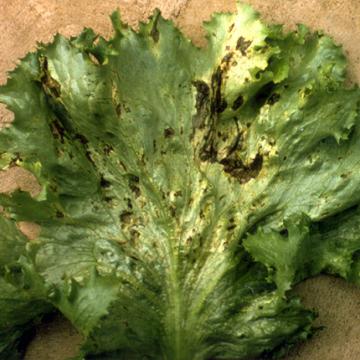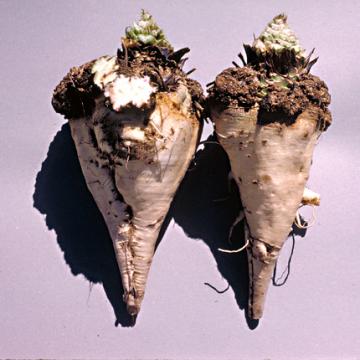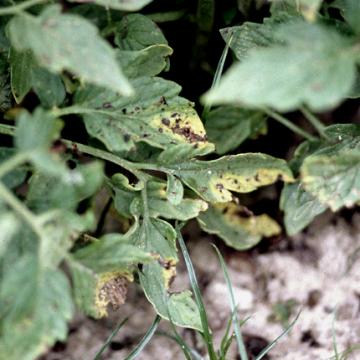DISEASE: Bacterial leaf spot (Head rot)
HOST: Cauliflower
Leaves with tiny lesions surrounded by large halos.
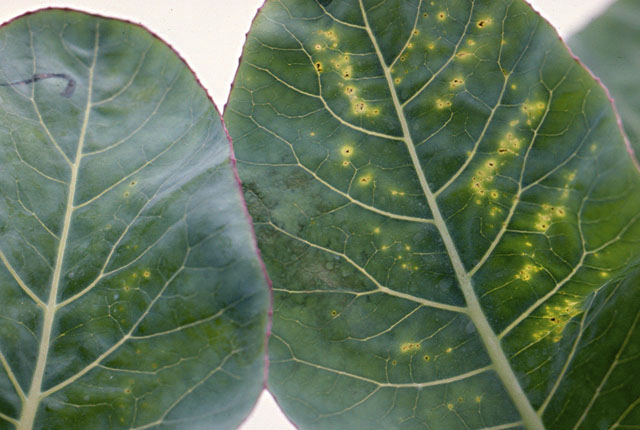
Bacterial leaf spot (Head rot) | Cauliflower
DISEASE: Bacterial leaf spot (Head rot)
HOST: Cauliflower (Brassica oleracea var. botrytis)
PATHOGEN: Pseudomonas syringae pv. maculicola
SOURCE: R. Campbell
DISEASE: Bacterial leaf spot (Head rot)
HOST: Cauliflower
Section of a cauliflower head with discolored, infected tissues.

Bacterial leaf spot (Head rot) | Cauliflower
DISEASE: Bacterial leaf spot (Head rot)
HOST: Cauliflower (Brassica oleracea var. botrytis)
PATHOGEN: Pseudomonas syringae pv. maculicola
SOURCE: R. Campbell
DISEASE: Bacterial leaf spot (Head rot)
HOST: Lettuce
Leaf with black, greasy spots that tend to be vein delimited. Lesions begin as small, angular, water-soaked lesions that coalesce, resulting in large necrotic areas.
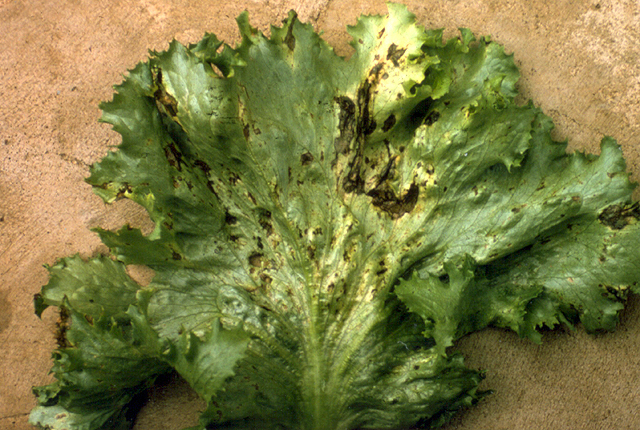
Bacterial leaf spot (Head rot) | Lettuce
DISEASE: Bacterial leaf spot (Head rot)
HOST: Lettuce (Lactuca sativa)
PATHOGEN: Xanthomonas axonopodis pv. vitians
PATHOGEN SYNONYM: Xanthomonas campestris pv. vitians
SOURCE: A. Alvarez
DISEASE: Bacterial pocket
HOST: Beet
Sugar beets with many small tubercles at infection sites.
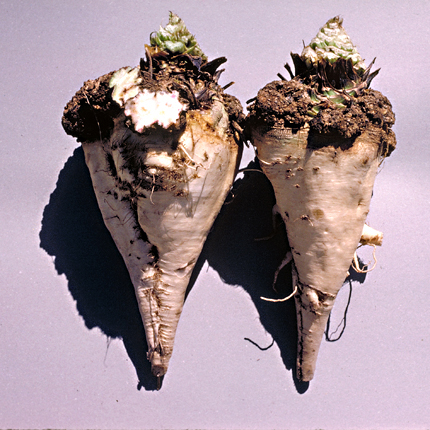
Bacterial pocket | Beet
DISEASE: Bacterial pocket
HOST: Beet (Beta vulgaris)
PATHOGEN: Xanthomonas axonopodis pv. betlicola
PATHOGEN SYNONYM: Xanthomonas campestris pv. betlicola
SOURCE: C. Schneider
DISEASE: Syringae leaf spot
HOST: Tomato
Leaves with brown necrotic lesions and chlorotic margins. Symptoms vary greatly among cultivars. Some have black or brown lesions with bright yellow, chlorotic areas and others do not have yellowing.
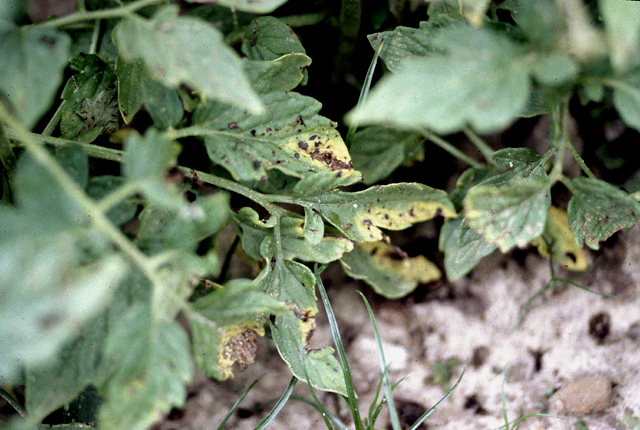
Syringae leaf spot | Tomato
DISEASE: Syringae leaf spot
HOST: Tomato (Lycopersicon esculentum)
PATHOGEN: Pseudomonas syringae pv. syringae
SOURCE: R. Gitaitis


